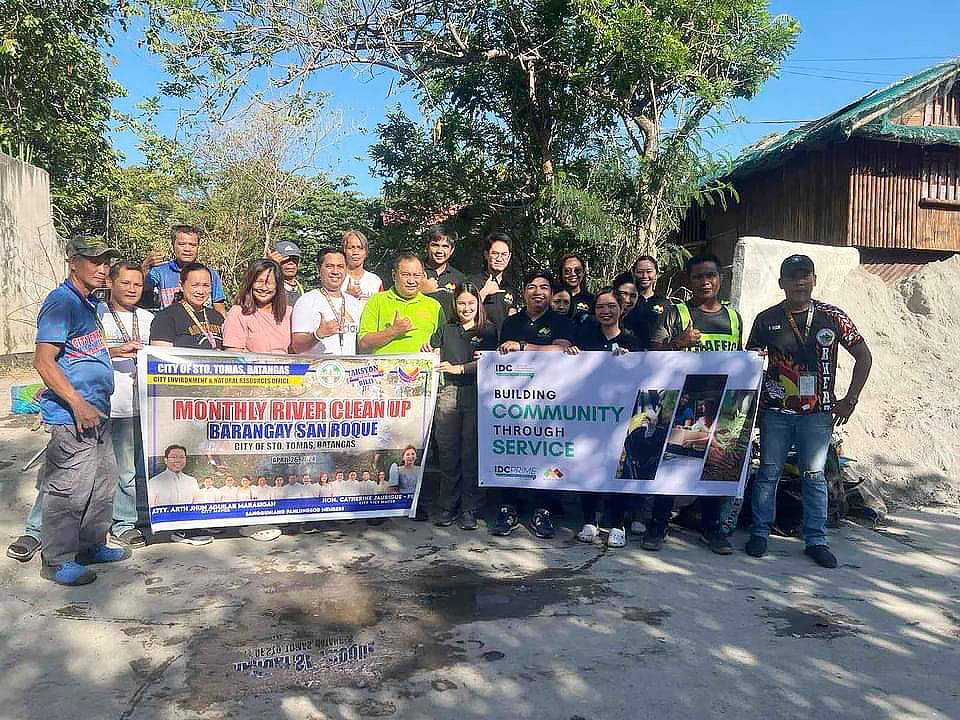On June 5, the global community celebrated the United Nations’ “World Environment Day.” In the Philippines, this commitment extended throughout the entire month of June, designated as the “Philippine Environment Month.” During this time, citizens are encouraged to reflect on sustainable development and the protection and enhancement of the country’s environment.
As a company that promotes green and sustainable living, Italpinas Development Corp. (IDC) has its own corporate social responsibility program (CSR) that is anchored on environmental conservation, community engagement, eco-friendly practices, and coastal clean-up. Through our myriad of initiatives, we strive to make a positive impact on both the environment and the communities we serve.
As an advocate of green living, I have committed to using my communication platforms—such as this column—to raising awareness about important causes. These include saving our oceans and rivers as well as protecting marine life.

The country’s wonderful beaches were one of the reasons why I couldn’t help but #LovethePhilippines when I first set foot on Philippine soil as a tourist and eventually decided to stay for good to set up Italpinas with my friend and business partner Atty. Jojo Leviste some 15 years ago.
Through the years, I have travelled to various parts of the country to enjoy the waters of Palawan, Boracay, Cebu and Batangas. I also have a modest beach house in Bataan to where I retreat on most weekends to recharge, snorkel, and to enjoy the beach and the serene environment.
It pains me, however, to see plastic and other waste material floating on the waters and onto the shores of our beautiful beaches that were either washed in from the sea or dumped by irresponsible tourists or residents in the area. This, certainly, needs to stop as this trash harms marine life, degrades the coastal ecosystem, and spoils the natural beauty of our archipelago.
Here are the hard facts: The Philippines ranks first as the country with the highest plastic waste emissions into the ocean per person each year, at 3.30 kilograms. Furthermore, more than 350,000 tons of plastic waste enter the ocean from the Philippines annually, accounting for 36% of the world’s total plastic waste. (source: Our World Data, a scientific online publication)
To say that plastic waste poses a significant threat is an understatement. Single-use plastics—bags, bottles, and wrappers—are accumulating every day in our oceans, breaking down into microplastics that infiltrate marine ecosystems. These tiny particles are ingested by fish, birds, and other wildlife, leading to a toxic cycle that ultimately affects human health.
We must each do our part as good citizens to save the environment. The government alone cannot save us. While law enforcement is something that can still be improved, companies and ordinary citizens should actively reduce waste, promote recycling, and adopt sustainable practices.
I am happy to share that in 2023, Italpinas was recognized by the City Environment and Natural Resources (CENRO) of Cagayan De Oro City for our contribution to save the environment, including our mangrove and coastal preservation activities.
This year, the company will be taking its good corporate citizenship program a notch higher. In support of the United Nations Social Development Goal (SDG), specifically its Goal No. 11- Sustainable Cities and Communities, we are committed to do more. Under our Green Initiatives (GI), which will promote sustainable practices and support environment-friendly practices, we will have more tree planting, mangrove planting, and our coastal clean-up drives- not only in CDO but also in Batangas where we operate.
I am also monitoring the development in Congress on the proposed legislation to phase out and tax single-use plastics to improve waste management with the country’s total daily waste projected to rise to 194,138 metric tons by 2055.
The Marcos administration has listed it as one of its priorities and expressed hope, through the National Economic and Development Authority (NEDA), that the proposed measures, namely House Bill 26 or Unnecessary Plastic Products Regulation and HB 4102 or the Excise Tax on Single-Use Plastic Bags will be acted upon once Congress resumes in July.
If enacted, the twin measures will be a big step towards reducing plastic pollution and promoting a more sustainable future. By phasing out unnecessary plastic products and implementing an excise tax on single-use plastic bags, we can significantly curb plastic waste, protect our environment, and safeguard the health of our communities.
I am hopeful that the pending bills will eventually be passed. The marine environment is one of the Philippines’ most precious gems and deserves protection.
